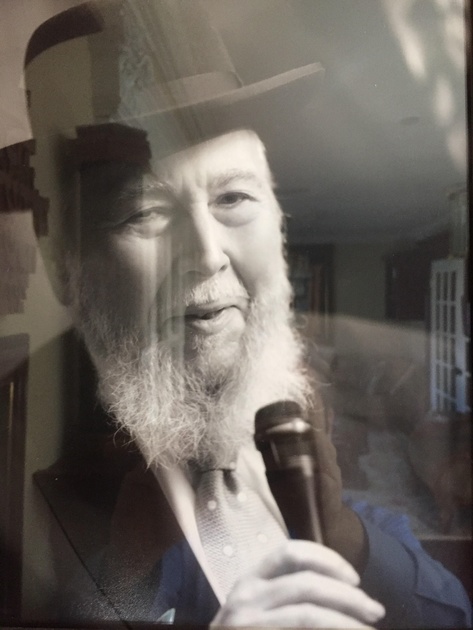
Eruvin 31
„У÷Љ÷∞„Ы„Х÷Љ„Ь÷Љ÷µ„Щ „Ґ÷Є„Ь÷∞„Ю÷Є„Р „Ю÷і„¶÷∞„Х÷є„™ „Ь÷Є„Р„Х „Ь÷µ„Щ„Ф÷Є„†„Х÷є„™ „†÷і„Щ„™÷Љ÷∞„†„Х÷Љ
The Gemara answers that Rava could have said to you: If they hold that one may establish an eiruv only for the sake of a mitzva, all would agree that the eiruv may be placed on a grave because mitzvot were not given for benefit.
for Video Shiur click here to listen: Psychology of the DAF Eruvin 31
The Maharal in Tiferes Yisrael beginning with chapter Four deeply develops the idea of „Ю÷і„¶÷∞„Х÷є„™ „Ь÷Є„Р„Х „Ь÷µ„Щ„Ф÷Є„†„Х÷є„™ „†÷і„Щ„™÷Љ÷∞„†„Х÷Љ mitzvot were not given for benefit. He foes way beyond the concept that one cannot know the reasons for the mitzvos. He takes the Gemara in Berachos 34b to its literal extreme, that even mitzvos such as sending the mother bird away which appear to be out of mercy, are NOT what they appear. He vehemently argues with the Rambam’s position on this in the Guide III:38, but even takes issue with Ramban on chumash who somewhat relates the mitzvah to mercy.
He explains, Bereshis Rabbah (1) tells us Hashem looked at the Torah and made the world. This means, the Torah does not tell us how to live in the world, but rather the world tells us how to live the Torah. Meaning, the mitzvah of sending the mother bird away is not to help the bird, or even to help man. Instead the bird was a creation to support the mitzvah. In other words, the Torah represents a deep truth that has many expressions. One facet of this is the physical world. Another facet of this is that the mitzvos benefit humans and bring goodness. But even the goodness is not the true reason, it is only a side effect of the ultimate truth of the Torah. The Torah is, “one plus one equals two”, it is a fact of the universe. In fact, even “one plus one equals two” is a mere side effect of a deeper truth to the Torah.
Thus when it says in Mishna Makkos (3:16):
„®÷Ј„С÷Љ÷і„Щ „Ч÷≤„†÷Ј„†÷∞„Щ÷Є„Р „С÷Љ÷ґ„Я „Ґ÷≤„І÷Ј„©„Б÷∞„Щ÷Є„Р „Р„Х÷є„Ю÷µ„®, „®÷Є„¶÷Є„Ф „Ф÷Ј„І÷Љ÷Є„У„Х÷є„©„Б „С÷Љ÷Є„®„Х÷Љ„Ъ÷∞ „Ф„Х÷Љ„Р „Ь÷∞„Ц÷Ј„Ы÷Љ„Х÷є„™ „Р÷ґ„™ „Щ÷і„©„В÷∞„®÷Є„Р÷µ„Ь, „Ь÷∞„§÷і„Щ„Ы÷Є„Ъ÷∞ „Ф÷і„®÷∞„С÷Љ÷Є„Ф „Ь÷Є„Ф÷ґ„Э „™÷Љ„Х÷є„®÷Є„Ф „Х÷Љ„Ю÷і„¶÷∞„Х÷є„™, „©„Б÷ґ„†÷Љ÷ґ„Р÷±„Ю÷Ј„® („Щ„©„Ґ„Щ„Ф „Ю„С) „Щ÷∞„Щ÷Є „Ч÷Є„§÷µ„• „Ь÷∞„Ю÷Ј„Ґ÷Ј„Я „¶÷і„У÷∞„І„Х÷є „Щ÷Ј„Т÷∞„У÷Љ÷і„Щ„Ь „™÷Љ„Х÷є„®÷Є„Ф „Х÷∞„Щ÷Ј„Р÷∞„У÷Љ÷і„Щ„®:
Rabbi Hananiah ben Akashia says: “The Holy Blessed One, desired to make Israel worthy, therefore He gave them much Torah [to study] and many commandments [to perform]: for it is says, “The Lord desires [his servant’s] vindication, that he may magnify and glorify [His] teaching” (Isaiah 42).
The point is, not that Hashem merely wanted to be good to us. Maharal argues, if that was so, Hashem would give us less mitzvos in order to make it easier on us. Rather, every mitzvah is specifically needed and representative of an immutable absolute truth. Hashem gave us the mitzvos so we can have a chance at being part of that truth. The goodness of the Torah is a dimension and a side effect, not the point. The point is something bigger and more true than we can grasp.
This is a difficult concept and I hope I gave it some justice. I urge the reader to study the original Maharal inside -- it is only 70 chapters long ![]()
for Video Shiur click here to listen: Psychology of the DAF Eruvin 31
Translations Courtesy of Sefaria
Photo Abba Mari Rav Chaim Feuerman, Ed.D. ZT"L Leiyluy Nishmaso
Translations Courtesy of Sefaria, except when, sometimes, I disagree with the translation ![]()
If you liked this, you might enjoy my Relationship Communications Guide. Click on the link above.
Rabbi Simcha Feuerman, Rabbi Simcha Feuerman, LCSW-R, DHL is a psychotherapist who works with high conflict couples and families. He can be reached via email at simchafeuerman@gmail.com
 Previous
Previous

